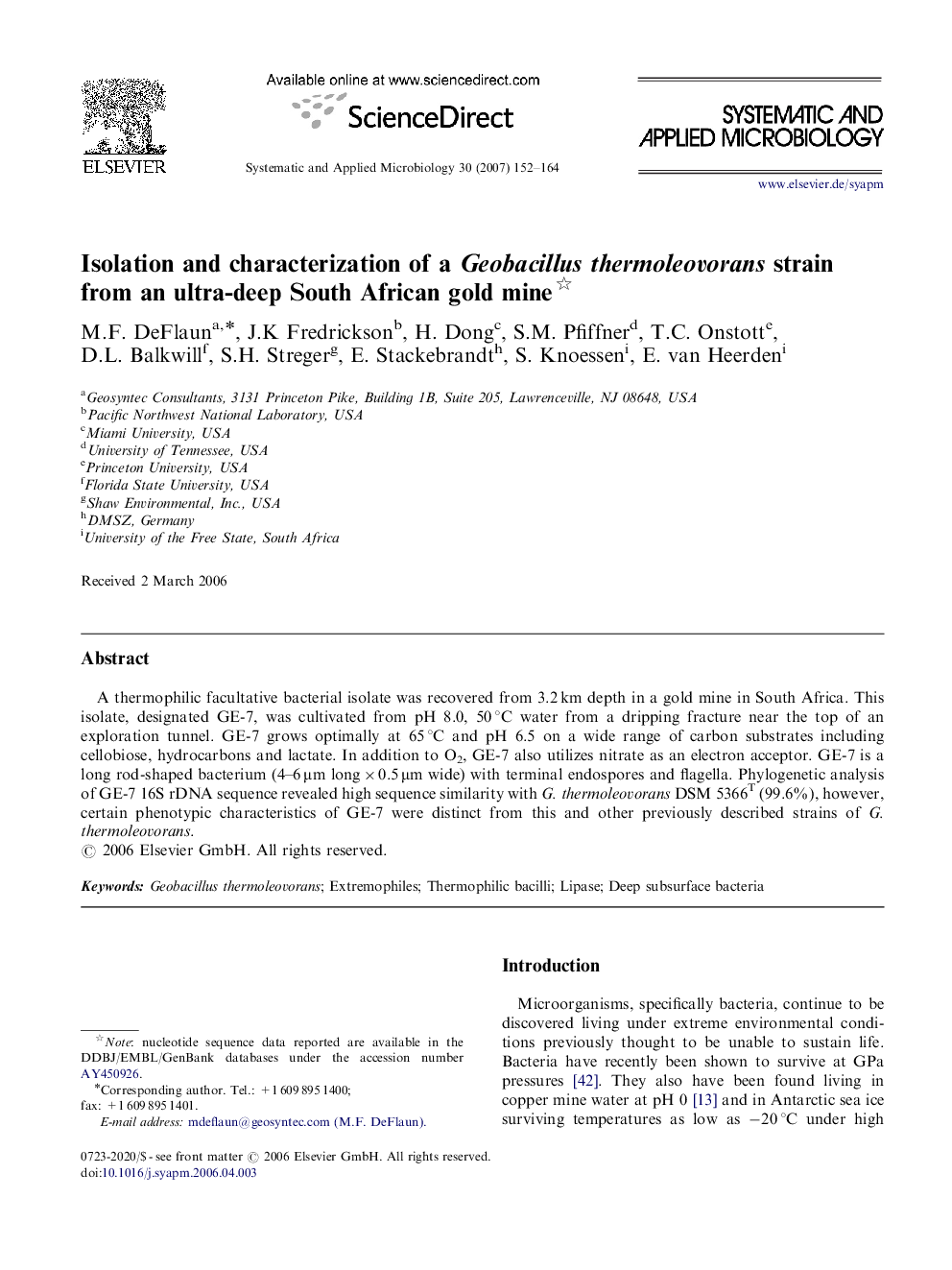| Article ID | Journal | Published Year | Pages | File Type |
|---|---|---|---|---|
| 2063459 | Systematic and Applied Microbiology | 2007 | 13 Pages |
A thermophilic facultative bacterial isolate was recovered from 3.2 km depth in a gold mine in South Africa. This isolate, designated GE-7, was cultivated from pH 8.0, 50 °C water from a dripping fracture near the top of an exploration tunnel. GE-7 grows optimally at 65 °C and pH 6.5 on a wide range of carbon substrates including cellobiose, hydrocarbons and lactate. In addition to O2, GE-7 also utilizes nitrate as an electron acceptor. GE-7 is a long rod-shaped bacterium (4–6 μm long×0.5 μm wide) with terminal endospores and flagella. Phylogenetic analysis of GE-7 16S rDNA sequence revealed high sequence similarity with G. thermoleovorans DSM 5366T (99.6%), however, certain phenotypic characteristics of GE-7 were distinct from this and other previously described strains of G. thermoleovorans.
